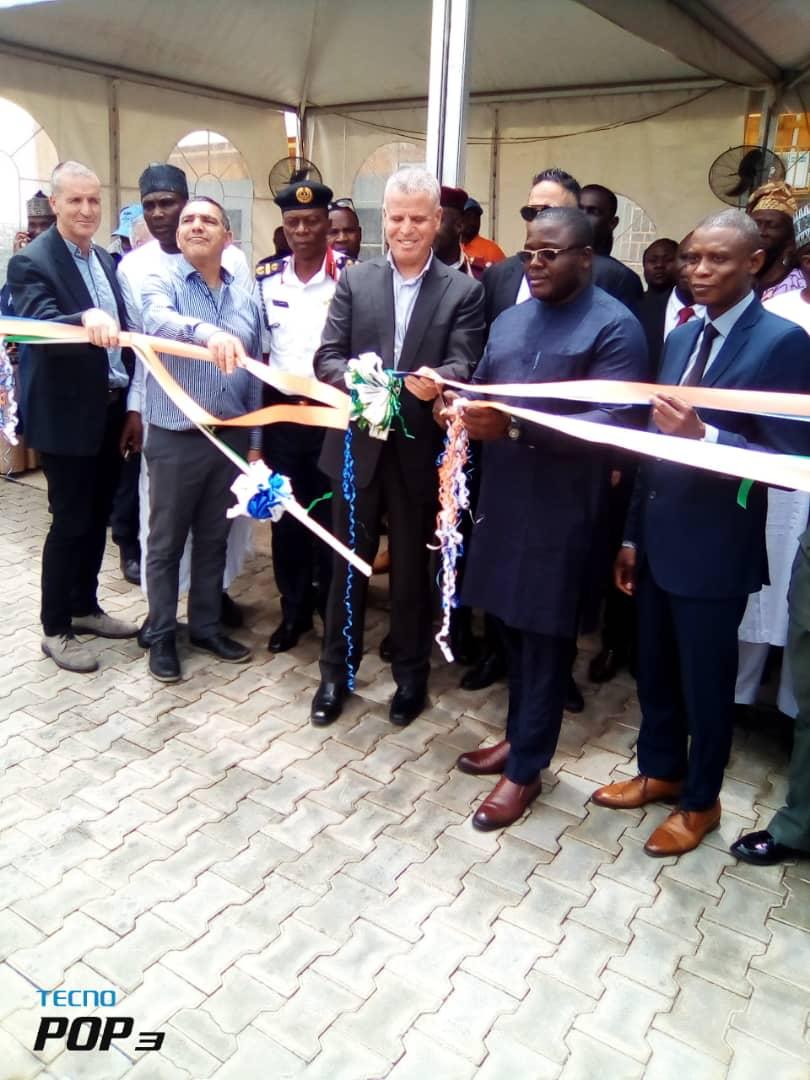In a bid to make Nigeria the startup capital of Africa, the Federal Government and the private sector have been advised to invest in the $250,000 worth energy innovation across communities in the country.
The call was made on Tuesday by the Executive Director, Innov8 Hub, Eduard Singhatey, during the commissioning of the E-Cube Smart Village in Abuja.
According to Singhatey, the energy innovation named E-CUBE concept worth $250,000 was invented in line with the Sustainable Development Goals, SDGs 2030 and will help solve the challenges of rural needs in areas of e-learning, agriculture production, telemedicine, community centre, water treatment and connectivity hub, noting that achieving development in the rural area is an expensive feat as there are 10 millions of people that do not have access to electricity citing the World Bank report in 2020.
Singhatey said that the E-Cube Smart Village will be built with locally made building materials, thereby providing job opportunities and building of capacities.
He added that the innovation will help sustain SDGs 1 (No poverty), SDGs 2 (Zero Hunger), SDGs 3 (Good health and well-being), SDGs 4 (Quality education); SDGs 5 (Quality equality); SDGs 6 (Clean water and sanitation) and SDGs 7 (Affordable and clean energy).
He said: “The reason this innovation hub was established was to provide an environment, place facilities and infrastructure where young Nigerians can come with their ideas and put their ideas into actual products with the assistance of our experts, our mentors, both domestic and international.
“In September 2015, under the auspices of the United Nations, member countries adopted what we call the Sustainable Development Goals, SDGs. There are 17 Sustainable Development Goals, but the ones that are most important to the developing world and of course, Nigeria in particular. SDGs number one on poverty that is to eradicate poverty by 2030, SDGs two, Zero Hunger, that is to ensure that hunger is a thing of the past by 2030. The SDGs three which is on good health, and well being SDGs four on quality education, SDGs five on gender equality SDG six on clean water and sanitation and SDGs seven on Clean and affordable energy.
“Considering the expensive feat in providing infrastructure for rural communities, what we really need are smart solutions. Smart solutions that will provide a solution to the problems that we are facing with lack of infrastructure development that we are plagued with.
“The concept of E-Cube and Smart Village concepts can provide a way around by providing infrastructure to the people who need it the most. They are in rural communities with little access to modern infrastructure.”
He added: “The Smart Village concept also suggests the adoption of smart solutions in both public and private sectors over a wide range of policy fields, such as improving access to services, developing short food supply chains and developing renewable energy.”
Singhatey said: “Now, I know there are many stakeholders here. We have representatives from Federal Government, State Governments and private sector. I think as stakeholders, we can look at how best we can buy into this concept not only the product, but the whole concept about the Smart Village and see how best we can change the lives of people that we are responsible for their status.”
Speaking to journalists, the LR Group of Israel, E-Cube, Avi Eluayam explained that the “E-CUBE is scalable. We can have a smaller system and we have a larger system. The system that we have here on display has 50 kilowatt of modules and is able to generate 300 kilowatt per day. This is enough for a community of 300-400 families. The cost of it is about $250,000. So it is a high capital cost but then for 20 years, you have zero maintenance costs. You don’t need to buy diesel, you don’t need to transport diesel. You don’t need to deal with environmental issues. And I think that in Nigeria, we can receive long term financing and then, if this system can finance for 20 years, we can have a very low monthly cost for this.”


